Sushi for Everyone to Enjoy. The Challenge and Passion of a Chef from [Sushi Ken]—The First Halal Sushi Restaurant in Japan
![Sushi for Everyone to Enjoy. The Challenge and Passion of a Chef from [Sushi Ken]—The First Halal Sushi Restaurant in Japan](https://rimage.savorjapan.com/svj/image/discover_oishii_japan/1138/article_head.jpg?t=1707379279)
![Sushi for Everyone to Enjoy. The Challenge and Passion of a Chef from [Sushi Ken]—The First Halal Sushi Restaurant in Japan](https://rimage.savorjapan.com/svj/image/discover_oishii_japan/1138/article_178835_w640z.jpg)
Starting his career as a sushi chef from the age of 18, Mr. Maki has been dealing with sushi for 32 years. 5 years have passed since taking the role as Itamae (Japanese cuisine chef) in [Sushi Ken], and it has been 4 years since starting Halal sushi. Being the first Halal sushi restaurant in Japan often visited by world’s leading figures, the restaurant is always full of regular customers from in and out of Japan.
![Sushi for Everyone to Enjoy. The Challenge and Passion of a Chef from [Sushi Ken]—The First Halal Sushi Restaurant in Japan](https://rimage.savorjapan.com/svj/image/discover_oishii_japan/1138/article_178836_w640z.jpg)
Learn How It All Started; Long-Established Sushi Restaurant in Asakusa, Tokyo Commencing Halal Service.
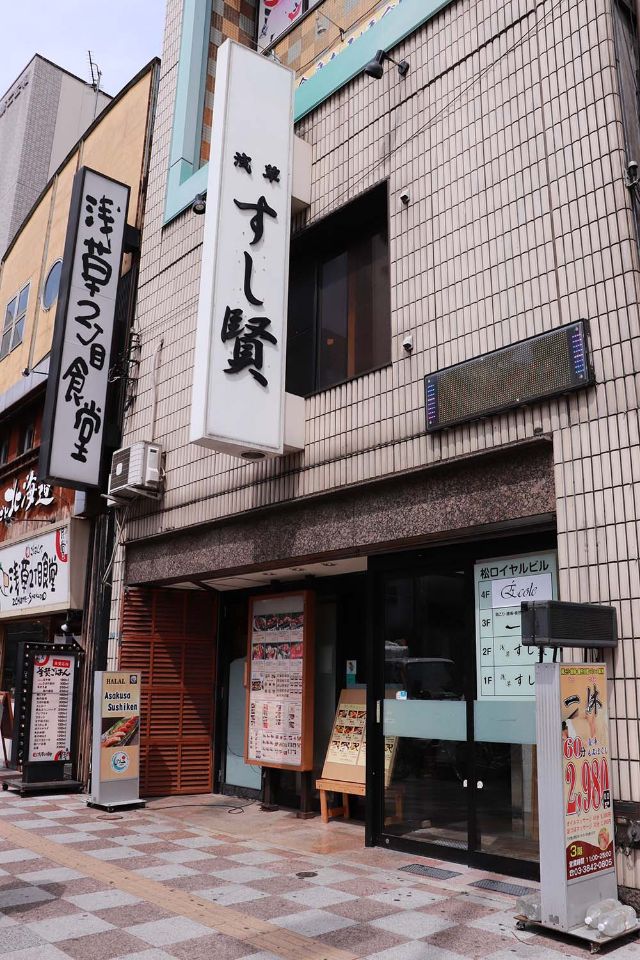
![Sushi for Everyone to Enjoy. The Challenge and Passion of a Chef from [Sushi Ken]—The First Halal Sushi Restaurant in Japan](https://rimage.savorjapan.com/svj/image/discover_oishii_japan/1138/article_178838_w640z.jpg)
![Sushi for Everyone to Enjoy. The Challenge and Passion of a Chef from [Sushi Ken]—The First Halal Sushi Restaurant in Japan](https://rimage.savorjapan.com/svj/image/discover_oishii_japan/1138/article_178839_w640z.jpg)
Yes. Vinegar, mirin (sweet rice wine) and soy sauce that includes alcohol as a primary ingredient are essential for preparing sushi. Currently, Halal ingredients are more common, but when we started, the ingredients were scarce and stocking them was difficult. We stringently inspected all of the ingredients and condiments through the table of ingredients sent by our distributors, so that none of the ingredients include Haram elements that Muslim are forbidden in Islamic law.
![Sushi for Everyone to Enjoy. The Challenge and Passion of a Chef from [Sushi Ken]—The First Halal Sushi Restaurant in Japan](https://rimage.savorjapan.com/svj/image/discover_oishii_japan/1138/article_178840_w640z.jpg)
Actually, our customers have never caught us starting Halal service since the day we started it 4 years ago.
We strongly aspired to preserve the taste for Muslim tourists so that they can have the same sensation as the Japanese do, and Japanese regular customers to have an authentic traditional sushi. Through trial and error, we strived to maintain the same taste using Halal ingredients and condiments.
![Sushi for Everyone to Enjoy. The Challenge and Passion of a Chef from [Sushi Ken]—The First Halal Sushi Restaurant in Japan](https://rimage.savorjapan.com/svj/image/discover_oishii_japan/1138/article_178841_w640z.jpg)
Even in the kitchen unseen by our customers, we thoroughly stick to Halal method. For instance, we do not use pork even for our staff meals.
As for our Japanese customers, we serve alcohol. Once the glass is used for serving alcoholic drinks, we never use it for Muslims customers. To distinguish clearly with the non-Halal glass, we use yunomi cup (Japanese teacup) and separate the kitchen sink for all Halal equipment. We ask our guest to understand this inconvenience.
ーCooperation from the customer is very much needed, isn’t it?
Yes. However, we do not treat our Muslim guests differently from others, as all the guests including Japanese customers are to receive the greatest hospitality.
Asking the Chef: How to Enjoy [Sushi Ken]
![Asking the Chef: How to Enjoy [Sushi Ken]](https://rimage.savorjapan.com/svj/image/discover_oishii_japan/1138/article_178842_w640z.jpg)
As we are a sushi restaurant, I would want them to experience sushi. However, as for those who cannot eat raw fish, we have chicken and beef. Of course, during the change in service, the meat was changed into Halal as well. Tempura is also one of the popular menus.
ーI understand that you would want them to eat sushi. What sushi ingredient is popular among foreigners?
Tuna fish is popular. As for those who prefer tuna I would recommend a menu called [Maguro-zukushi (Assorted nigiri-sushi cooked with various parts of tuna)]. Furthermore, there are guests who are curious about how to eat sushi. Although we do have a booklet on how to eat sushi, I want the guests to eat as they like.
![Sushi for Everyone to Enjoy. The Challenge and Passion of a Chef from [Sushi Ken]—The First Halal Sushi Restaurant in Japan](https://rimage.savorjapan.com/svj/image/discover_oishii_japan/1138/article_178843_w640z.jpg)
I want them to dine feeling safe without any source of anxiety. Visiting foreign country and experiencing foreign culture are already very stressful in itself. I want them to at least enjoy eating without any worries. That is what I exactly feel for Japanese visitors too. I would like all of the guests to have a superb dining experience.
Interviewed RestaurantAsakusa Sushi Ken
Disclaimer: All information is accurate at time of publication.
Thank you for reading our article.
Our goal is to take your culinary journey to the next level by helping you find the best restaurant. With SAVOR JAPAN, you can search and make reservations for
the Sushi and Halal restaurants found in and around Tokyo that fill your needs.
Discover more Sushi and Halal restaurants by area
- Tokyo Area
- Near Tokyo
- Kyoto and Osaka Area
- Hokkaido Area
- Northern Honshu (Tohoku)
- Central Honshu (Chubu)
- Western Honshu (Chugoku)
- Shikoku
- Kyushu
- Okinawa and Ryukyu Islands
Discover more restaurants to eat Japanese Cuisine and Global/International Cuisine by area
Keywords
Related Articles
New Articles
Categories
Cuisine
- Bars (24)
-
Japanese Cuisine (692)
- Kaiseki (48)
- Nabe (20)
- Okonomiyaki (26)
- Shabu Shabu (38)
- Soba (19)
- Sushi (142)
- Tempura (19)
- Teppanyaki (48)
- Shojin Ryori (3)
- Tonkatsu (14)
- Kushiyaki (10)
- Yakitori (44)
- Sukiyaki (36)
- Japanese Cuisine (346)
- Oyster (2)
- Sashimi/ Seafood (28)
- Unagi (eel) (38)
- Motsu Nabe (offal hotpot) (10)
- Mizutaki (chicken hot pot) (4)
- Oden (8)
- Kaisendon (seafood bowl) (12)
- Udon (3)
- Taverns(Izakaya) Cuisine (127)
- Western Cuisine (43)
- Italian/French Cuisine (94)
- Yakiniku/Steak (229)
- Chinese Cuisine (26)
- Ramen (Noodles) Cuisine (24)
- Cafe/Sweets (64)
- Other Asian Cuisine (5)
- Global/International Cuisine (7)
- Alcohol (50)
- Other (11)
Area
- Shikoku (10)
- Kyoto and Osaka (348)
-
Tokyo (468)
- Tokyo (293)
- Ginza (45)
- Roppongi (20)
- Shibuya (28)
- Shinjuku (46)
- Asakusa (21)
- Ebisu (12)
- Tsukiji (11)
- Tokyo Landmarks (4)
- Ueno (23)
- Akihabara (9)
- Ikebukuro (12)
- Jiyugaoka, Denenchofu, Nakameguro (9)
- Shimokitazawa (4)
- Kichijoji (3)
- Tachikawa (1)
- Omotesando, Harajuku, Aoyama (17)
- Akabane (1)
- Kagurazaka (4)
- Akasaka (11)
- Odaiba (2)
- Tsukishima, Harumi, Toyosu (3)
- Near Tokyo (101)
- Okinawa and Ryukyu Islands (59)
- Hokkaido (125)
- Northern Honshu (Tohoku) (31)
- Central Honshu (Chubu) (143)
- Western Honshu (Chugoku) (34)
- Kyushu (94)
Archives
- February 2026(12)
- January 2026(11)
- December 2025(9)
- November 2025(4)
- October 2025(3)
- September 2025(6)
- August 2025(11)
- July 2025(19)
- June 2025(18)
- May 2025(34)
- April 2025(43)
- March 2025(30)
- February 2025(36)
- January 2025(26)
- December 2024(69)
- November 2024(31)
- October 2024(15)
- September 2024(39)
- August 2024(65)
- July 2024(31)
- June 2024(54)
- May 2024(61)
- April 2024(28)
- March 2024(31)
- February 2024(42)
- January 2024(32)
- December 2023(20)
- November 2023(5)
- October 2023(11)
- September 2023(7)
- August 2023(18)
- July 2023(8)
- June 2023(8)
- May 2023(18)
- April 2023(15)
- March 2023(1)
- January 2023(1)
- April 2022(2)
- March 2022(2)
- February 2022(1)
- January 2022(1)
- July 2021(1)
- March 2021(1)
- February 2021(1)
- December 2020(1)
- October 2020(1)
- September 2020(2)
- August 2020(10)
- July 2020(6)
- June 2020(9)
- May 2020(11)
- April 2020(8)
- March 2020(8)
- February 2020(13)
- January 2020(9)
- December 2019(24)
- November 2019(8)
- August 2019(14)
- July 2019(14)
- June 2019(18)
- May 2019(17)
- April 2019(16)
- March 2019(22)
- February 2019(22)
- January 2019(25)
- December 2018(34)
- November 2018(40)
- October 2018(32)
- September 2018(11)
- August 2018(8)
- July 2018(6)
- June 2018(9)
- May 2018(10)
- April 2018(21)
- March 2018(74)
- February 2018(39)
- January 2018(26)
- December 2017(60)
Keywords
- Omakase
- Accessible
- Affordable
- All-You-Can-Eat
- Amazing Scenery
- anime
- Art
- Autumn
- Awards
- Beer Gardens
- Breakfast
- Chef Recommendations
- Cherry Blossoms
- Chinese
- Close To Station
- Condiments
- Counter
- Coupon
- Crab
- Culture
- Dassai
- Dates
- delivery
- Early Summer
- Editor's Recommendation
- English Available
- Event
- Expo
- Fall Leaves
- Family-Friendly
- Famous Restaurant
- Famous Tourist Spot
- Fast Food
- festival
- fireworks
- Flower Farm
- Free Wi-Fi
- French
- Great Location
- Guide
- Hibachi
- hotpot
- How To
- hydrangea
- Hygiene
- Illumination
- Italian
- Izakaya
- Japanese
- Japanese alcohol
- jingisukan
- Kaiseki
- Kappo
- Kushiage
- Kushikatsu
- Kyoto
- Late-Night
- Lunch
- Manners
- matsusakagyu
- Michelin
- mizutaki
- Model Course
- monjayaki
- motsunabe
- Mt.Fuji
- Multilingual Menus
- Nabe
- Narita Airport
- New Year
- Ninja
- Noodle
- Oden
- Okonomiyaki
- omotenashi
- Onsen
- Osaka
- Osaka Station
- Photogenic Site
- pizza
- PR
- Private Room
- Ramen
- ranking
- Recipe
- Regional Cuisine
- Resort
- Rice Bowl Dish (Donburi)
- sacred places
- Sake
- Sakura
- Sashimi
- sea urchin
- Setouchi Area
- Shabu Shabu
- sightseeing
- Signature Dish
- Soba
- Solo Diners Welcomed
- Spicy Food
- Spring
- Steak
- Summer
- Sunflower
- Sushi
- takeout
- Teppanyaki
- Terrace Seating
- Tokyo
- Tokyo Experiences
- Tokyo Skytree
- Tokyo Tower
- unagi
- UNESCO
- Vegan
- Vegetarian
- Wagyu
- What Popular Gourmet Sites Recommend
- Whisky
- Wine Bar
- Winter
- Wisteria
- Workshop
- World Heritage Site
- World Writers
- Yakiniku
- Yoshoku
- Yuba
- Zen
Discover Restaurants By Area
-

Tokyo Area
Japan's largest city, Tokyo, is the center of culinary culture in Japan. Countless Tokyo restaurants serve every kind of food imaginable and the Toyosu fish market keeps restaurants stocked with the nation's finest fish.
-

Near Tokyo
Coastal areas, mountains and valleys surrounding Tokyo are bursting with tourist destinations, such as hot springs and ski slopes, where many unique foods are only available locally.
-

Kyoto and Osaka Area
The cities of Kyoto and Osaka, together with their surrounding areas, have greatly influenced Japan's culinary culture since the 7th Century. The region is renowned for its entertainment, Kobe beef, and wide-ranging traditional dishes.
-

Hokkaido Area
The island of Hokkaido is home to wide-ranging produce of the finest quality, such as rice, meat, vegetables, fish and fruit. Popular dishes from Hokkaido include robatayaki (food slowly roasted on skewers) and Sapporo miso ramen.
-

Northern Honshu (Tohoku)
The northern end of Japan's main island, Honshu, is renowned for its seasonal fruit and vegetables, nation-leading harvest of fish (especially tuna from Ohma), and delicious beef from Yonezawa, Sendai and Yamagata.
-

Central Honshu (Chubu)
Chubu is in the center of Japan's main island, Honshu, and its culinary culture reflects its position between Japan's western and eastern halves. Delicious Hida beef, world-famous Mount Fuji and many acclaimed sake breweries are in Chubu.
-

Western Honshu (Chugoku)
Chugoku, on the southwest of Japan's main island, is rich with diverse produce. Many of its products are praised as Japan's best, including Matsuba crabs from Tottori and oysters from Hiroshima. Its pears and muscats are also top grade.
-

Shikoku
The mild climate of Shikoku is ideal for growing citrus fruit such as sudachi. Shikoku is also famous for Sanuki udon noodles, huge yields of tiger prawn from Ehime Prefecture and the best torafugu (tiger globefish) in the country.
-

Kyushu
Western culture was first introduced to Japan through Kyushu, Japan's third largest island, where the influence of Portuguese and other western cuisine influenced the creation of a colorful culinary tradition.
-

Okinawa and Ryukyu Islands
Okinawa, Japan’s southernmost prefecture, is a treasure trove of distinctive dishes and drinks that have become popular throughout Japan, including Okinawa soba, unique sushi toppings and Awamori distilled liquor.
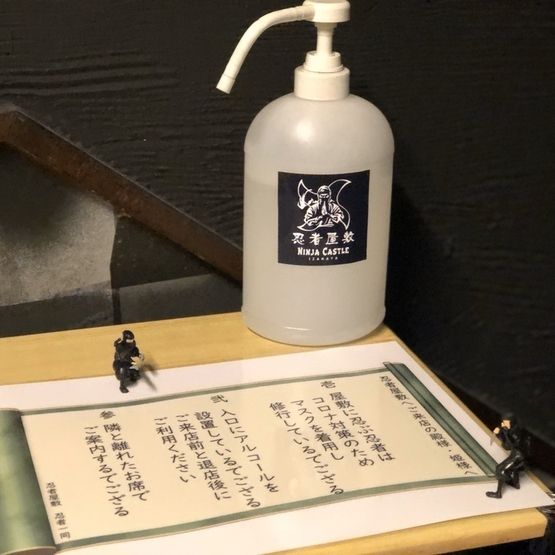
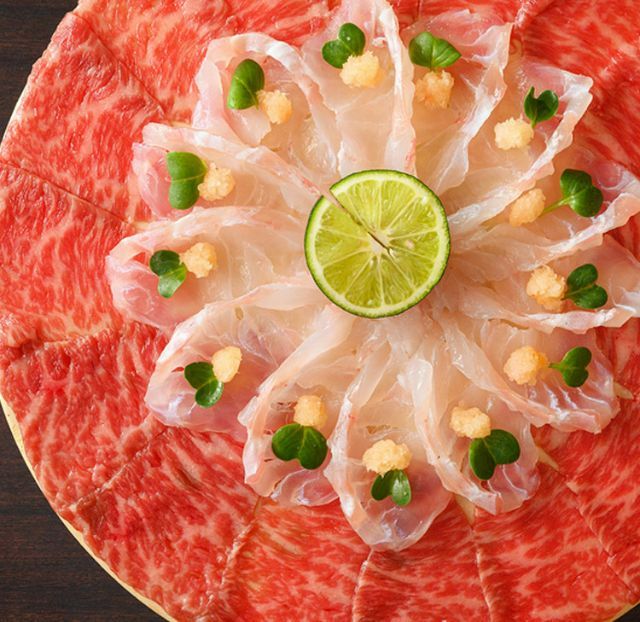
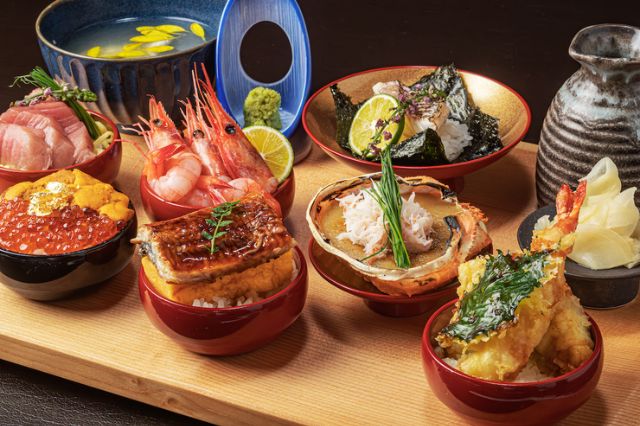
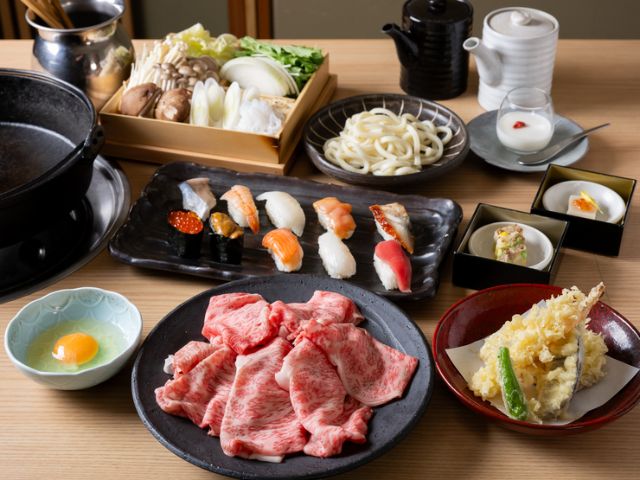
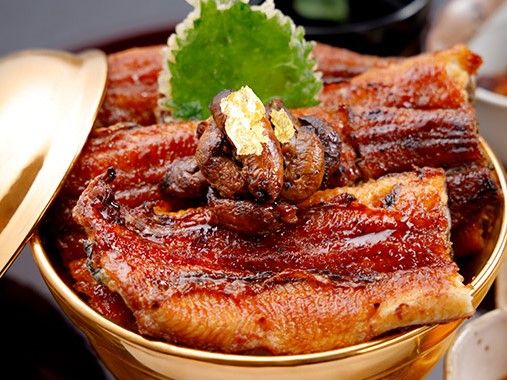
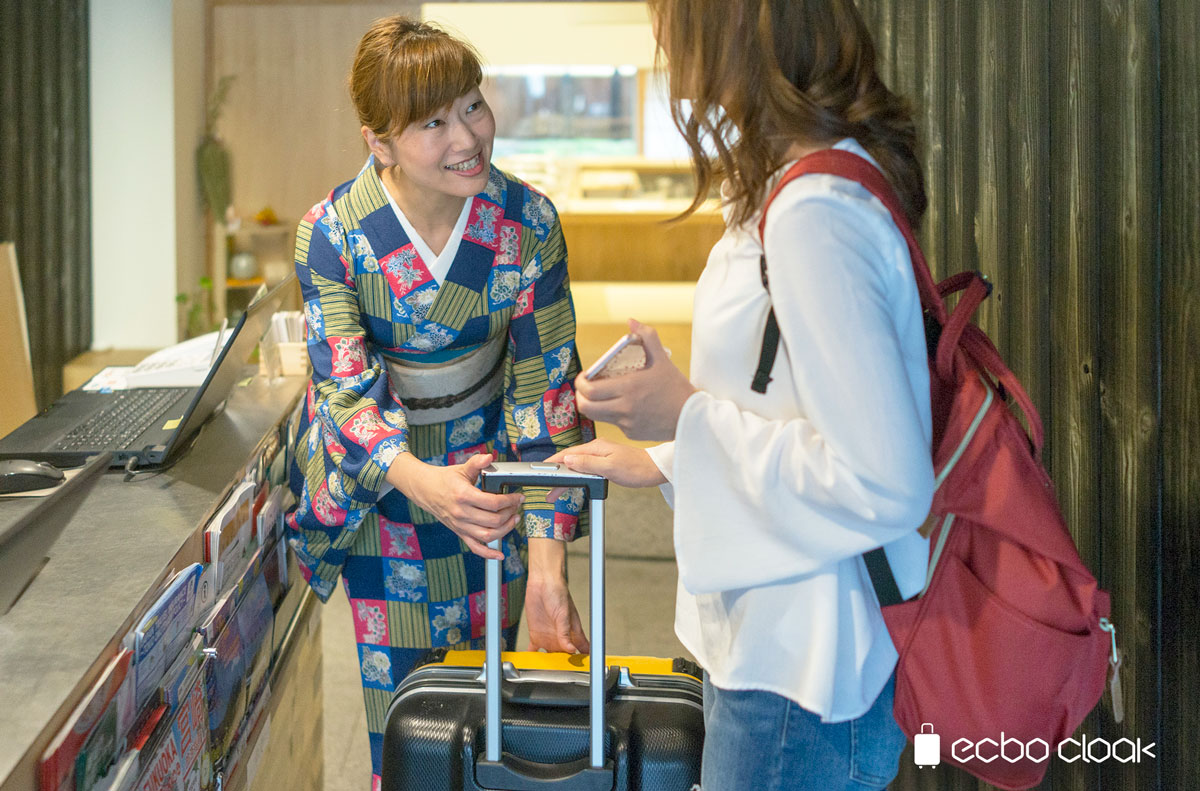
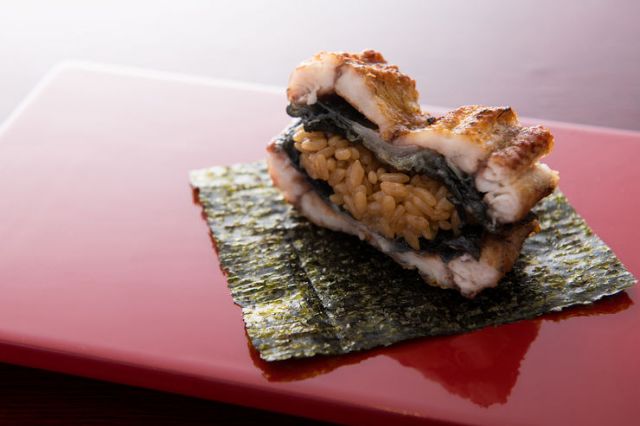
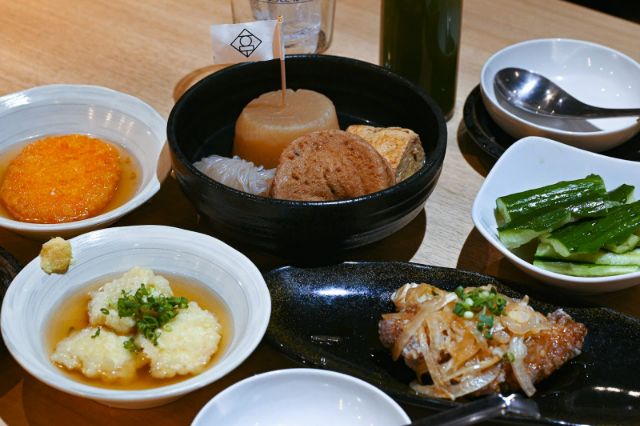
![[Hokkaido] Top 5 Popular Restaurants for Sapporo Sightseeing! Featuring Editor's Recommended Picks](https://rimage.savorjapan.com/svj/image/discover_oishii_japan/6979/article_head_150x105z.jpg?t=1772017426)
![[Osaka] Top 5 Popular Restaurants! Featuring Editor's Recommended Restaurants](https://rimage.savorjapan.com/svj/image/discover_oishii_japan/6978/article_head_150x105z.jpg?t=1772016962)